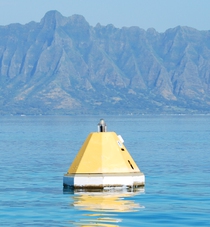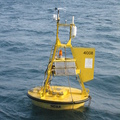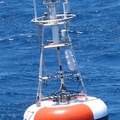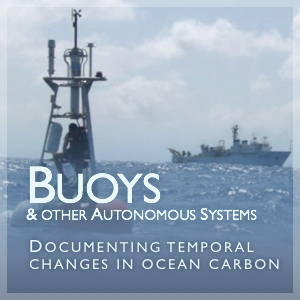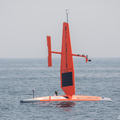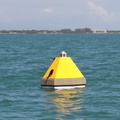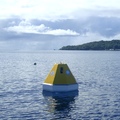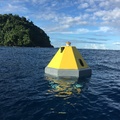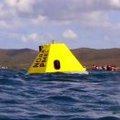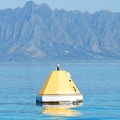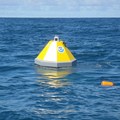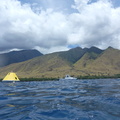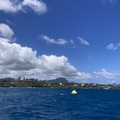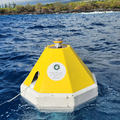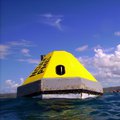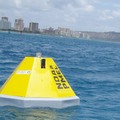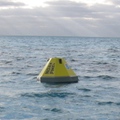Coral Reef Moorings
PMEL is developing a global network of carbon dioxide time-series observations
A primary concern with respect to coral reef ecosystems is coral health and their ability to precipitate calcium carbonate. Any decline in rates of calcification or increase in net dissolution rates is a concern for the persistence of reef systems. Within U.S. coral reef ecosystems rates of accretion on healthy, undisturbed reefs are known to only slightly outpace rates of reef loss. Experimental observations beginning in the 1990’s reveal a functional relationship between argonite saturation state and coral calcification rate suggesting declining levels of calcification will occur with increasing acidification. Increasing net dissolution is also a concern. While the oceanic subtropical surface waters will remain supersaturated with respect to aragonite for several centuries, most reefs are not solely composed of aragonite. Instead much of the reef is comprised of more soluble high-Mg calcites. Furthermore, the diurnal amplitude in seawater pCO2 levels within the reef zone can be 10 times that of the open oceanic waters and often exhibit a decrease in overall saturation state due to calcification and respiration processes. As a result, there may be periods at night when many reefs currently exhibit net dissolution rate. Thus, increased ocean acidification could have profound impacts on some of the most fundamental geochemical and biological processes of the sea in coming decades. A decline in coral reef accretion rates due to simultaneous increases in temperature and decreases in saturation states would have negative impacts on coral reef ecosystems, with consequent effects on fisheries, tourism, and coastal protection from storms.
Baseline studies that encompass the natural temporal (diurnal- to inter-annual) and spatial (latitudinal) changes in near-reef carbonate chemistry do not exist for most coral reef systems. This makes detection and characterization of ocean acidification very difficult in these systems. Working with a number of partners, the PMEL carbon group is trying to develop such baselines through the use of moored CO2 systems at selected reefs across large latitudinal gradients.

